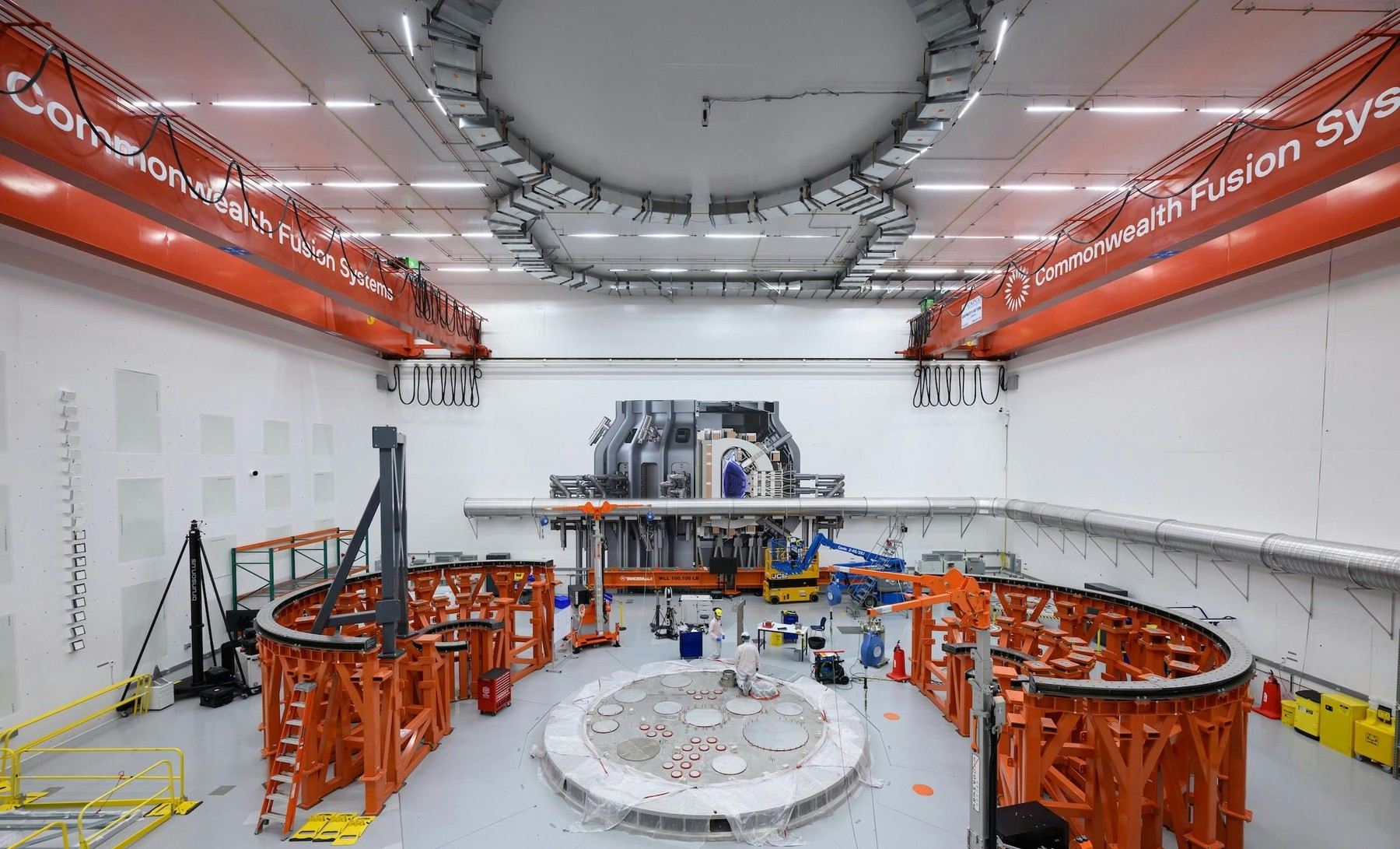Welcome to Climate Tech Pulse, your daily dose of market intelligence helping fuel the fight against climate change. From groundbreaking investments to cutting-edge research, we’re bringing you the latest in climate tech that’s shaping our future.
Don’t miss out on tomorrow’s climate solutions – subscribe now to stay ahead of the curve! https://lnkd.in/dwr7B9XJ
Today’s newsletter:
🔝Today’s Top Story: Singapore’s state-owned investor, Temasek, has pledged S$100 million ($77.67 million) in concessional capital for the Concessional Capital for Climate Action (CCCA) initiative.

📊 Today’s Data Point: Key Insights from the Recent Survey on EU Citizens’ Perspectives.
🌳 Climate Insider Intelligence: LEAF Coalition’s $180 Million Amazon Rainforest Deal.
Temasek Commits S$100M in Concessional Capital to Accelerate Asia’s Green Transition and Climate Action
Image Credit: Temasek
Temasek Allocates S$100M for Climate Action
Singapore’s state-owned investor, Temasek, has pledged S$100 million ($77.67 million) in concessional capital for the Concessional Capital for Climate Action (CCCA) initiative. This fund aims to address barriers in financing climate action projects by providing flexible and patient capital. The initiative seeks to crowd in additional forms of capital to accelerate the green transition, especially in marginally bankable opportunities.
Scaling Climate Action in Asia
Temasek highlights the critical role of Asia in the global net-zero battle, as the region accounts for over half of the world’s population and carbon emissions. Through concessional capital and blended finance, the CCCA initiative aims to support clean infrastructure projects and decarbonization efforts in emerging markets like Southeast Asia, addressing unique structural and financial challenges.
Long-Term Philanthropy with Catalytic Potential
Temasek’s S$100 million commitment is funded by its philanthropic community gifts, which have been part of its sustainability and governance strategy since 2003. By mobilizing concessional capital alongside commercial investors, Temasek hopes to catalyze greater financial flows into climate action and foster sustainable living practices, contributing to intergenerational impact. Read More
Quote of the Day
“Climate change is the defining crisis of our time. At Temasek, we have been investing in sustainability across the years, and have deployed commercial capital to scale innovation for the green transition. At the same time, we see the criticality of concessional capital to catalyze financing into emerging markets and developing economies,” said Lim Boon Heng, Chairman of Temasek.
Significance: Lim Boon Heng highlights climate change as the most pressing global issue, framing Temasek’s efforts as part of a broader imperative to address the climate crisis.
Commitment to Sustainability: Temasek has a longstanding history of investing in sustainability, signaling its active role in the green transition through commercial capital and innovative solutions.
Importance of Concessional Capital: The statement highlights the critical role of concessional capital in catalyzing climate finance, especially in emerging markets and developing economies where commercial investments may fall short.
Blended Finance Approach: Lim Boon Heng emphasizes how concessional capital can complement commercial funding, helping overcome financing barriers and accelerate climate action in regions facing greater financial challenges.
Alignment with Broader Climate Goals: By positioning concessional capital as a crucial tool, Temasek aims to mobilize diverse forms of funding to close the global climate financing gap, reinforcing its commitment to sustainability at scale.
Market Movers
- Utility Global’s $53 million Series C funding will accelerate the commercialization of its innovative clean fuel technology, which converts industrial gases into low-carbon fuels without electricity, helping decarbonize energy-intensive sectors like steel. Read More
- Anaphite’s £10.4 million Series A funding will support the development of its technology to make electric vehicle battery production more affordable and energy-efficient, attracting investment from leading climate-focused VCs. Read More
- GeoPura’s £22 million asset-backed debt raise, the first of its kind for a UK green hydrogen company, will drive the production of over 3,600 hydrogen power units by 2033, supporting renewable fuel infrastructure and advancing the clean energy transition. Read More
- Dandelion Energy’s $40 million Series C funding, led by GV, will support the nationwide expansion of its geothermal heat pump technology to homeowners and developers, furthering its mission to revolutionize home heating and cooling. Read More
Tech Spotlight
Breakthrough in Rare-Earth Element Recycling through SEEE Process
Image Credit: Hang Hua et al.
Source: Kyoto University Research Publication, September 2023
Researchers from Kyoto University have developed the selective extraction–evaporation–electrolysis (SEEE) process for efficiently recycling rare-earth elements (REEs) from end-of-life magnets. This innovation is set to revolutionize REE recovery, which is vital for green technologies such as electric vehicles and wind turbines.
Commercial Viability
Performance Metrics:
The SEEE process achieved impressive recovery rates of 96% for neodymium (Nd) and 91% for dysprosium (Dy), both at over 90% purity. These REEs are crucial in high-performance magnets for green technologies, ensuring an environmentally sustainable recycling process.
Cost-Effectiveness:
By offering a more energy-efficient alternative to traditional recycling methods, the SEEE process can reduce costs associated with mining and material sourcing, positioning it as a financially viable solution for the circular economy.
Technical Viability
Innovative Structure:
The SEEE process utilizes molten salts, specifically a mixture of calcium chloride (CaCl2) and magnesium chloride (MgCl2), along with calcium fluoride (CaF2), to selectively extract REEs. This precision method ensures minimal environmental impact and high material recovery.
Independent Functionality:
The process involves three key stages: selective extraction, evaporation, and electrolysis. This efficient workflow enables the recovery of high-purity Nd and Dy metals, making it a strong alternative to existing hydrometallurgical techniques.
Environmental Viability
Sustainable Energy Development:
REEs are critical to green energy technologies. By making their recycling more efficient, the SEEE process reduces the need for new mining operations, directly supporting global sustainability initiatives.
Climate Alignment:
The recycling of REEs via the SEEE process contributes to a stable supply of materials for electric vehicles and renewable energy systems, aiding in the transition to a low-carbon economy.
Scaling Potential
Commercialization Pathways:
The SEEE process could be adapted beyond Nd magnets, potentially impacting sectors like nuclear fuel reprocessing. As demand for green technologies rises, scaling up this process can secure a steady supply of critical materials.
Investment and Growth:
This technology is likely to attract significant investment due to its role in reducing environmental impact while meeting the growing demand for sustainable energy solutions.
Long-Term Implications
Transformative Impact on REE Recycling:
The SEEE process represents a major leap in the recycling of critical materials. It holds promise to reduce dependency on new REE mining, thus minimizing environmental degradation.
Future Prospects:
With further research, the SEEE process could be integrated into large-scale industrial applications, transforming the global recycling landscape and supporting the circular economy in rare-earth elements. Read More
Policy Pulse
This section includes global updates on climate change policy, governance and regulation.
GPSC secures $216.85m loan for clean energy investments.
Global Power Synergy Public Company (GPSC) has secured $216.85 million in credit to accelerate its renewable energy investments, aligning with its decarbonization strategy to achieve over 65% renewable capacity by 2026 and advance its goal of reaching net-zero emissions by 2060, positioning itself as a key player in Southeast Asia’s energy transition.
Why it Matters: This development matters because it enables GPSC to significantly scale its renewable energy efforts, advancing Southeast Asia’s transition to clean energy while contributing to global decarbonization goals. Read More
Today’s Climate Data Point
Public Opinion on EU Energy Policy: Key Insights from the Recent Survey on EU Citizens’ Perspectives
Source: EU Energy Policy Survey
A recent survey exploring EU citizens’ views on energy policy reveals that ensuring affordable energy prices is the primary concern for respondents across 25 Member States. The survey highlights varying perceptions of EU energy policy, emphasizing the need for investment in innovative technologies and energy consumption reduction.
Key Findings:
General Perceptions of EU Energy Policy:
- Affordable Energy Prices: 40% of respondents (up 13 percentage points since 2019) believe a European energy policy should prioritize affordable energy prices for consumers.
- Investment in Innovation: 33% of respondents (up 9 pp) indicate the importance of investing in innovative energy technologies.
- Energy Consumption Reduction: 30% of respondents (up 2 pp) see reducing energy consumption across Europe as a key component.
The pictogram illustrates:
- 40% prioritize affordable energy prices.
- 33% advocate for investment in innovative energy technologies.
- 30% support decreasing energy consumption.
- 27% stress the need for coordination among EU countries.
- 27% emphasize improving energy infrastructure.
- 25% support driving EU climate neutrality.
National-Level Variations:
- Greece: 51% prioritize affordable energy prices.
- Lithuania: 50% share this view.
- Sweden: Only 22% express the same priority.
In contrast:
- Spain, Italy, Netherlands, Sweden: 39% to 38% mention investment in innovative technologies.
- Latvia, Hungary, Czechia, Romania: 19% to 23% mention the same.
Responses on Energy Consumption:
- Hungary: 43% prioritize reducing energy consumption.
- Finland, Germany, Lithuania: Only 24% mention it as a priority.
Key Perspectives on EU Added Value:
- Renewable Energy Investment: 35% of respondents believe the EU adds value by supporting renewable energy investments, ranking this as the top response across all Member States.
- Innovative Technologies: 27% recognize the EU’s role in this area.
- Affordability: 25% see value in ensuring affordable energy prices.
Attitudes Towards EU Climate Neutrality Target:
- Support for Climate Neutrality: 81% of citizens agree that a climate neutrality target will help combat climate change and protect the environment.
- Economic Growth: 79% believe it will create jobs and attract investments in clean energy.
- Energy Independence: 76% agree it will reduce dependence on energy imports, while 69% think it will lower energy bills.
The pictogram highlights:
- 81% support for climate neutrality for environmental protection.
- 79% believe it will spur job creation.
- 76% view it as a means to reduce energy dependence.
Expectations of the EU’s Role in Energy Coordination:
- Stronger Coordination: 77% believe the EU should enhance its role in coordinating energy matters.
- Integrated Actions: 36% call for more coordinated actions at the European level.
- Specific Coordination: 27% support coordination only on specific issues.
- Crisis-Justified Coordination: 14% advocate for coordination only during crises.
- Opposition: 19% believe the EU should not strengthen its coordination role.
National-level support varies, with Luxembourg and Malta at 88% in favor, while Czechia and Estonia are lower at 58% and 61%.
Priorities for the Next Five Years:
- Affordable Energy Prices: 30% of respondents prioritize helping consumers access affordable energy.
- Energy Consumption Reduction: 27% emphasize this as a key issue.
- Energy Independence: 26% support reducing imports and enhancing independence.
- Investment in Innovation: 25% back innovative energy technologies.
- Climate Neutrality and International Efforts: 21% support both objectives equally. Read More
Climate Insider Intelligence: LEAF Coalition’s $180 Million Amazon Rainforest Deal
Image Credit: LEAF Coalition
In a very significant move, Amazon has joined forces with the LEAF Coalition to invest $180 million in carbon credits aimed at preserving the Brazilian rainforest. This initiative not only highlights the urgency of combating climate change but also sets a precedent for corporate responsibility in environmental stewardship. With the Amazon rainforest playing a critical role in global carbon regulation, this strategic partnership represents a transformative approach to forest conservation. Dive deep into how this deal could reshape the carbon credit market and empower local communities while ensuring the Amazon remains a vital ally in the fight against climate change.Read the full analysis from Climate Insider!








